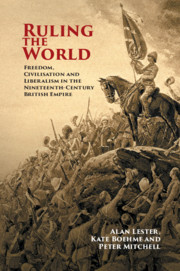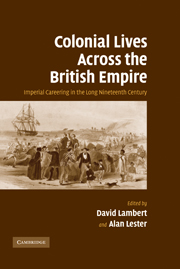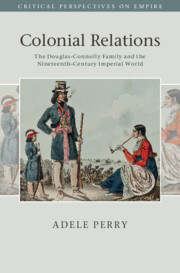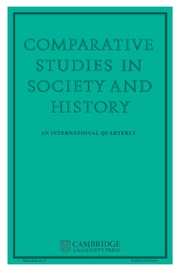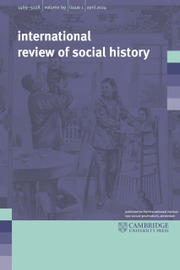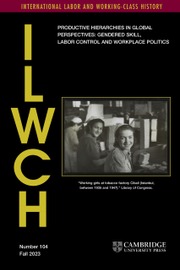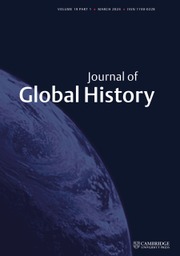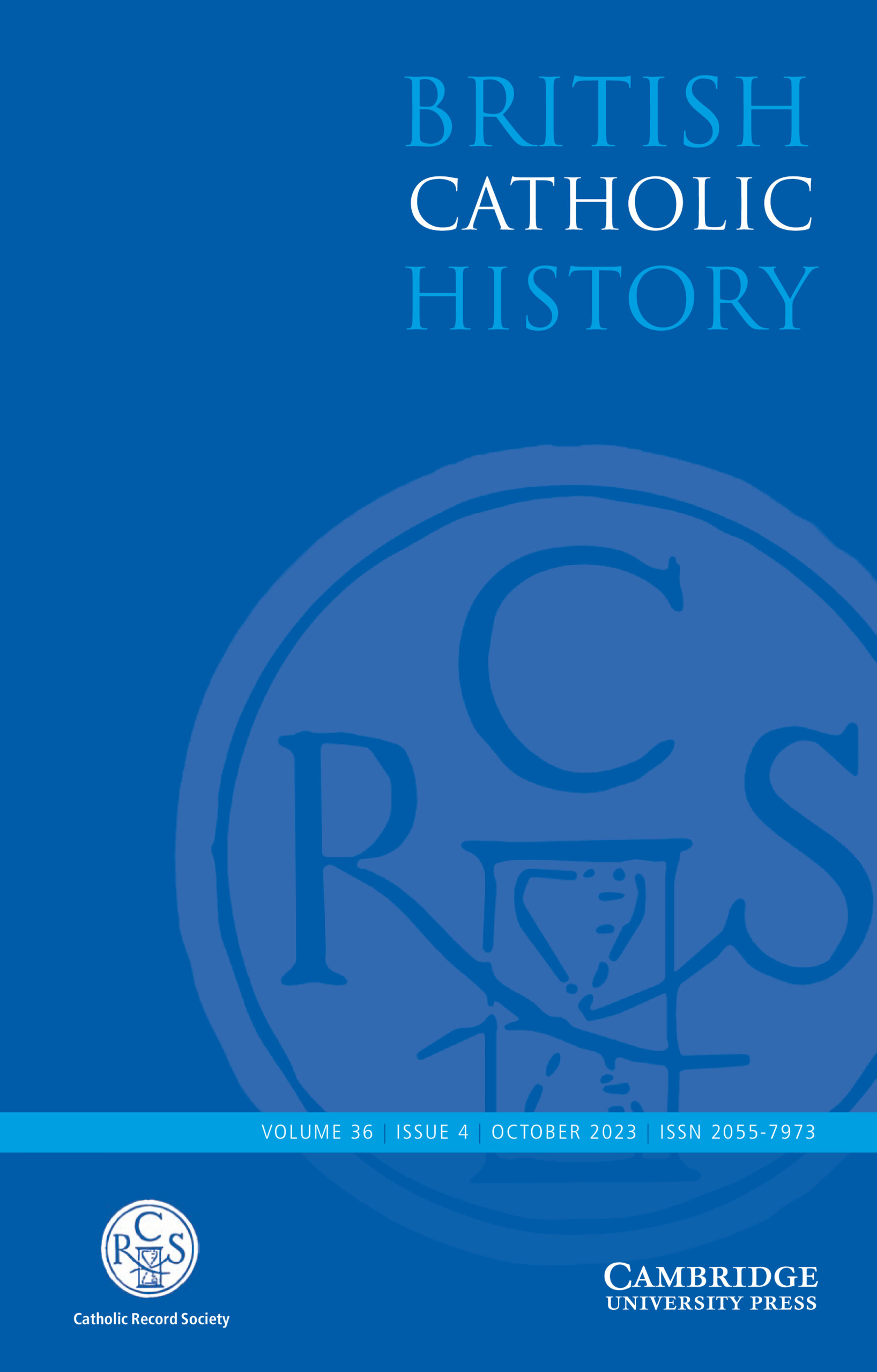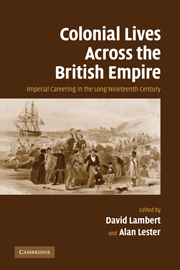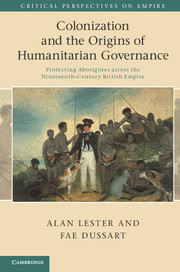Ruling the World
Freedom, Civilisation and Liberalism in the Nineteenth-Century British Empire
- Authors:
- Alan Lester, University of Sussex
- Kate Boehme, University of Leicester
- Peter Mitchell, University of Sussex
- Date Published: January 2021
- availability: Available
- format: Paperback
- isbn: 9781108444897
Paperback
Other available formats:
Hardback, eBook
Looking for an inspection copy?
Please email [email protected] to enquire about an inspection copy of this book
-
Ruling the World tells the story of how the largest and most diverse empire in history was governed, everywhere and all at once. Focusing on some of the most tumultuous years of Queen Victoria's reign, Alan Lester, Kate Boehme and Peter Mitchell adopt an entirely new perspective to explain how the men in charge of the British Empire sought to manage simultaneous events across the globe. Using case studies including Canada, South Africa, the Caribbean, Australia, India and Afghanistan, they reveal how the empire represented a complex series of trade-offs between Parliament's, colonial governors', colonists' and colonised peoples' agendas. They also highlight the compromises that these men made as they adapted their ideals of freedom, civilization and liberalism to the realities of an empire imposed through violence and governed in the interests of Britons.
Read more- Reassesses nineteenth-century colonial governance during a series of key moments in the development of the British Empire
- Provides a more complete understanding of the diverse colonies under British rule
- Develops a new perspective on governmentality and offers a new framework for understanding key episodes in British imperial history
Reviews & endorsements
'Ruling the World will change our understanding of the British Empire and the societies that were formed and transformed under its rule. Strikingly, it brings alive both the actions of individuals and the broader sweep of imperial history. Never before has a focus on the actions of elite white men been so enlightening for understanding what the empire meant for the Indigenous peoples they sought to govern.' Ann Curthoys, co-author with Jessie Mitchell of Taking Liberty: Indigenous Rights and Settler Self-government in Colonial Australia, 1830–1890
See more reviews'A compelling analysis of how imperial government actually worked at three moments of crisis in the Victorian Empire. High aspirations clashed with geopolitical anxiety, and the pressure of lobbies at home and in the colonies: the recourse to violence was the default mode in a climate of entrenched racial prejudices. This is a major contribution to British imperial history.' John Darwin, author of Unfinished Empire: The Global Expansion of Britain
'Ruling the World takes three snapshots of metropole and empire in 1838, 1857 and 1879 to illuminate the scale of the endeavours to promote and enforce, sometimes with great violence, varieties of freedom/unfreedom, British notions of white civilization, and liberal/illiberal governance on colonized others. An ambitious and engrossing read which insists on confronting the discriminatory and rapacious realities of empire.' Catherine Hall, author of Civilising Subjects: Metropole and Colony in the English Imagination 1830–1867
'This excellent book considers these topics and many more in a sophisticated approach that echoes the finest work of earlier generations of historians whose research is often unknown to today's postmodernists and post-Saidian commentators. This is a superb contribution to imperial studies … Highly recommended.' R. D. Long, Choice
'Ruling the World breathes new life into the history of British imperial administration.' Alex Middleton, University of Oxford
'… the book provides concrete material out of which a renovated theory of Victorian racist practice might be developed.' Nathan K. Hensley, Victorian Studies
Customer reviews
Not yet reviewed
Be the first to review
Review was not posted due to profanity
×Product details
- Date Published: January 2021
- format: Paperback
- isbn: 9781108444897
- length: 510 pages
- dimensions: 229 x 150 x 23 mm
- weight: 0.63kg
- availability: Available
Table of Contents
Introduction
Part I. 1838: The Year of Freedom:
1. Setting the scene for emancipation
2. Managing expectations
3. Political freedom
4. Settler liberties
5. Free trade, famine and invasion
6. Steam and opium
Conclusion to Part I: An empire of freedom?
Part II. 1857: The Year of Civilization:
7. Setting the scene: Hubris and crisis
8. 'A struggle of life and death'
9. A new imperial government
Conclusion to Part II: An empire of civilization?
Part III. 1879: The Year of Liberalism:
10. Liberal fathers and sons
11. Imperialism
12. Imperial wars and their aftermaths
Conclusion to Part III: A liberal empire?
Appendix. Cast of characters.
Sorry, this resource is locked
Please register or sign in to request access. If you are having problems accessing these resources please email [email protected]
Register Sign in» Proceed
You are now leaving the Cambridge University Press website. Your eBook purchase and download will be completed by our partner www.ebooks.com. Please see the permission section of the www.ebooks.com catalogue page for details of the print & copy limits on our eBooks.
Continue ×Are you sure you want to delete your account?
This cannot be undone.
Thank you for your feedback which will help us improve our service.
If you requested a response, we will make sure to get back to you shortly.
×
